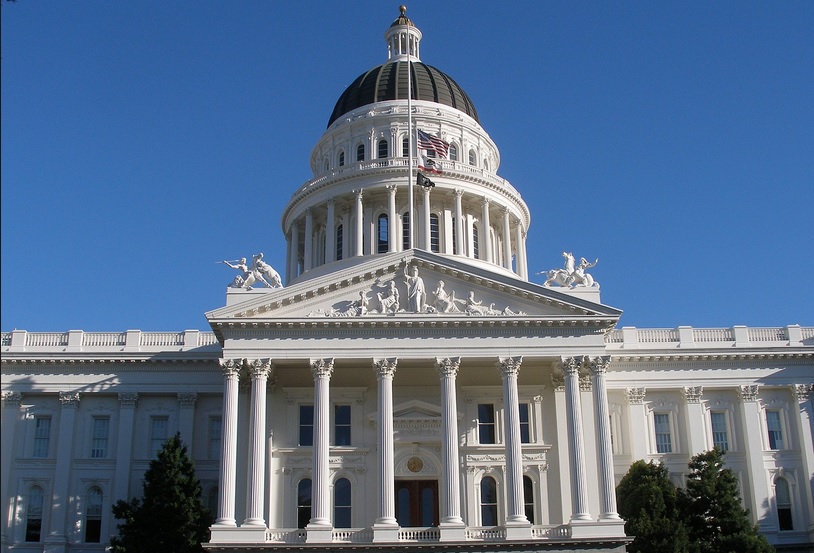
Wall Street Journal Editorial,
California gave birth to the so-called gig economy with startups like Uber, Lyft and Postmates that are used by millions. But now Golden State Democrats are trying to smother their babies, and the progressives running for President want to help.
Gig companies rely on flexible workforces to meet consumer demand—whether pizza delivery at midnight or a plumber for a weekend leak. Most workers use these gigs to supplement other forms of income, and they like to set their own hours and toggle between platforms.
How Political Is the Federal Reserve?
Subscribe
Unions and plaintiff attorneys disapprove. Because gig workers are classified as independent contractors rather than employees, they are exempt from minimum-wage and overtime laws, unemployment insurance, workers compensation and ObamaCare’s employer mandate. They also can’t unionize.
Gig companies “fit right into a corporate tradition going back more than a century, in which big, powerful entities exploit labor laws to boost their bottom lines—never mind the consequences for the workers actually doing the work,” Massachusetts Sen. Elizabeth Warren wrote in the Sacramento Bee this month. Ah, Uber is the new Standard Oil.
Sacramento Democrats are trying to move legislation to codify an “ABC” test that would turn most independent contractors into employees. To pass the contractor test, a worker would have to be “free from control and direction”; perform work “outside the usual course of the hiring person or entity’s business”; and be “customarily engaged in an independently established trade, occupation, or business.”
Even many professionals wouldn’t pass this test, so doctors, Realtors, insurance brokers, investment advisers and dozens of other professions are begging for exemptions. Democrats are aiming at gig companies, but such businesses as franchises, truckers and construction contractors will also likely become union and trial-bar targets.
Reclassifying gig workers as employees would erode the flexibility and economics of digital platforms. Companies would have no choice but to impose more control over workers. Under California law, employers must give employees a 10-minute rest break every four hours. If your Grubhub food delivery guy is due for a break, too bad.
Companies would also have to ensure their workers earn the local minimum wage wherever they work. There are 21 distinct minimum-wage rates in the Bay Area, so Uber would have to adjust pay rates as a driver passes from San Francisco ($15.59) to Richmond ($15.00) and Oakland ($13.80). Drivers would also have to earn the minimum wage even during the time they aren’t ferrying passengers.
Prices that consumers pay would naturally rise, though workers probably wouldn’t receive much benefit. After New York City imposed a $17.22 minimum wage for ride-hailing drivers, Lyft increased fares by 25%, which resulted in lower rider demand. Lyft has since begun blocking drivers from its platform when there is low rider demand. As a result, driver earnings have dropped.
Oh, and companies would also have to cover other employment-related costs including workers compensation and unemployment insurance. After these paycheck deductions, workers would earn even less.
Democrats are couching all of this as “worker protections,” though Assemblywoman Lorena Gonzalez, the bill’s sponsor, in the spring complained that gig workers aren’t paying their fair share in taxes. “California continues to lose millions—possibly billions—of dollars. Studies show many independent contractors don’t actually pay their taxes,” she lamented.
In other words, this is a money grab. Unions want more dues-paying members, and plaintiff attorneys have made a nice business suing companies for even minor labor infractions. Last year 5,730 wage-and-hour law complaints were filed under the California Private Attorneys General Act, up from 4,218 in 2015.
The state’s lethal cocktail of high taxes and regulation may be retarding job growth relative to other states. (See nearby chart.) Since February California has lost 175,000 jobs. The gig bill’s added costs, complications and uncertainties would kill more jobs while accelerating the movement toward automation with drones and self-driving cars.
Many gig-economy companies are bleeding cash—Uber lost $5.2 billion in the second quarter. All of this is fine by Democratic presidential hopefuls including Ms. Warren, Bernie Sanders and Kamala Harris, who have endorsed the California bill and are co-sponsoring similar legislation in Congress. If you have a good gig going, you won’t be able to keep it.
Disclaimer: Articles featured on Oregon Report are the creation, responsibility and opinion of the authoring individual or organization which is featured at the top of every article.

